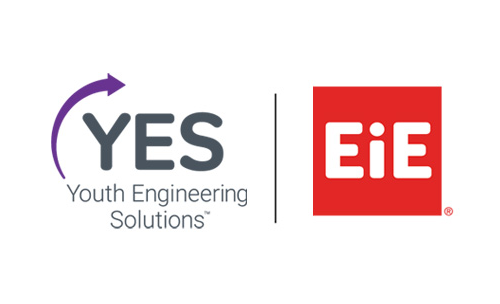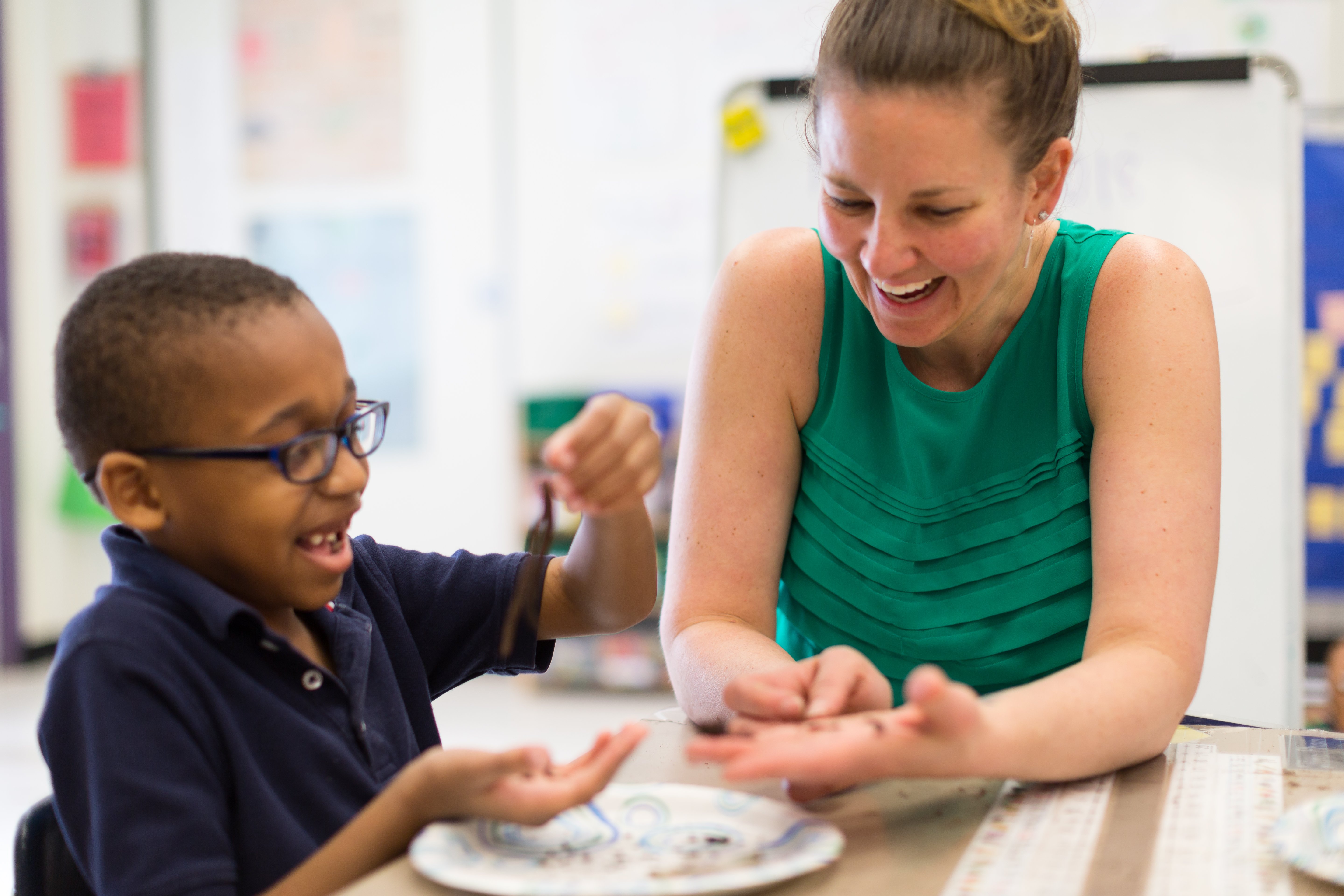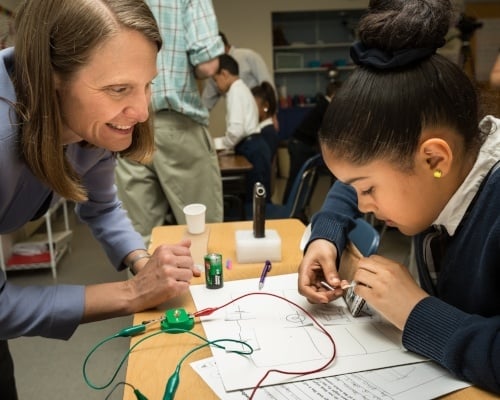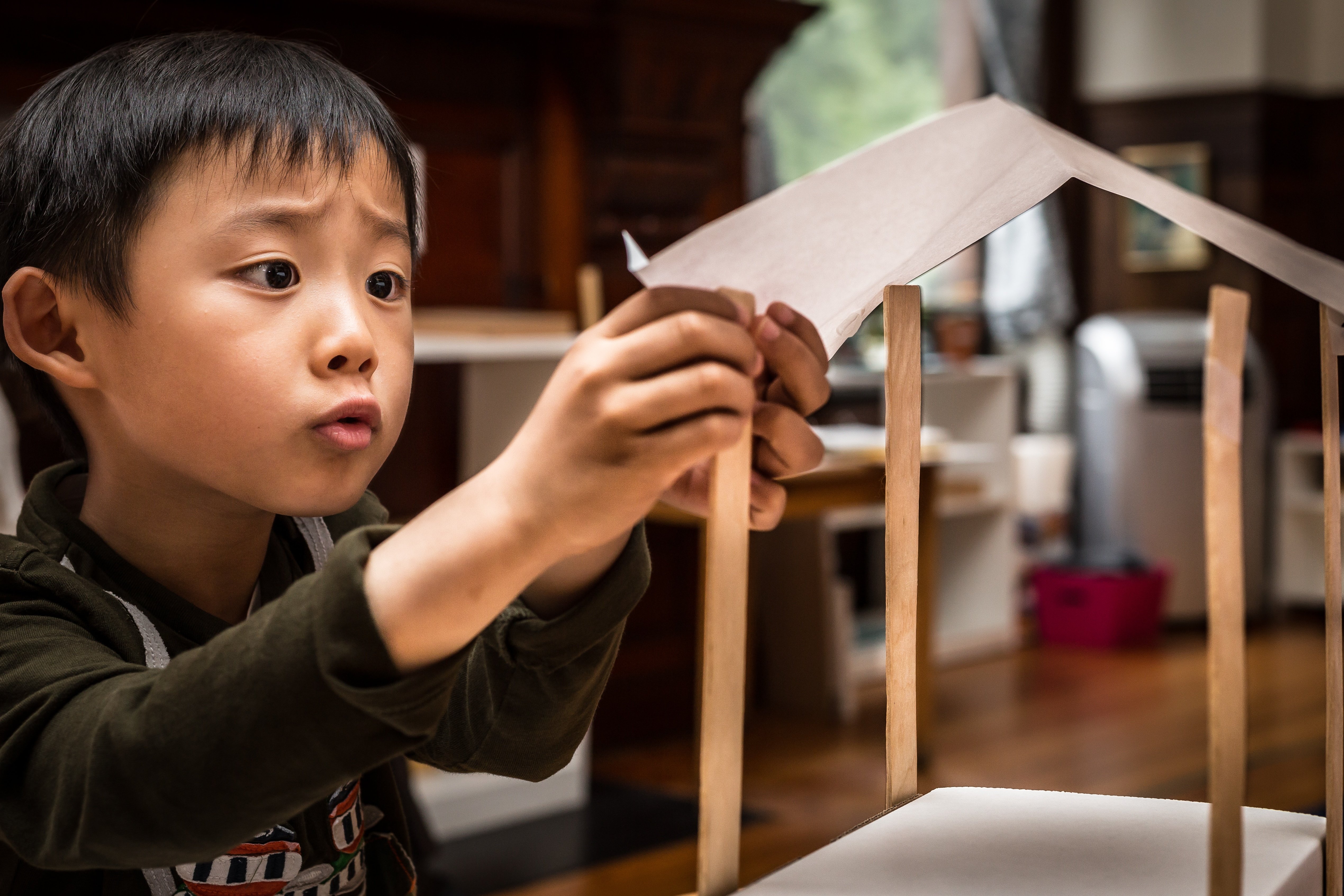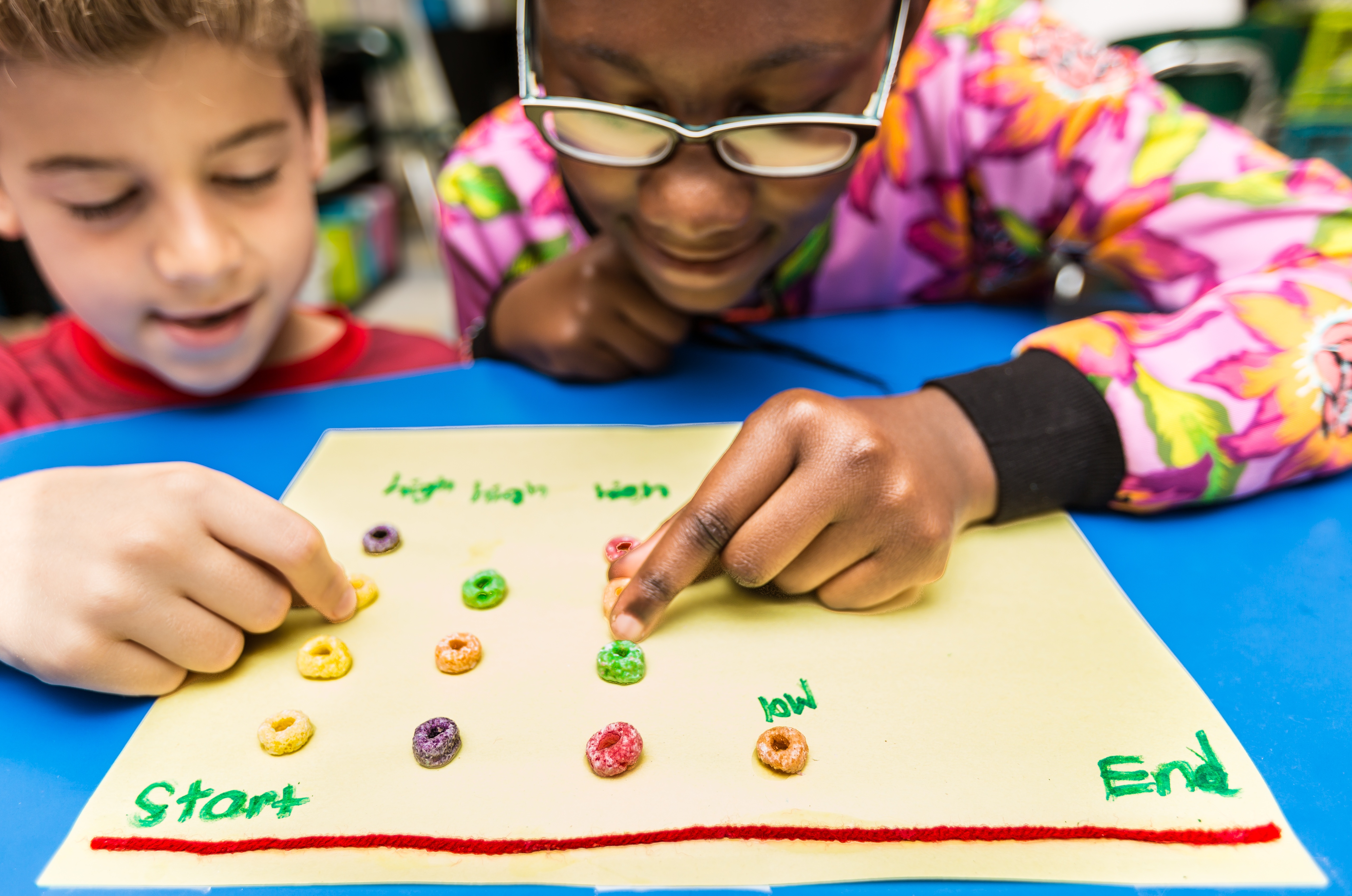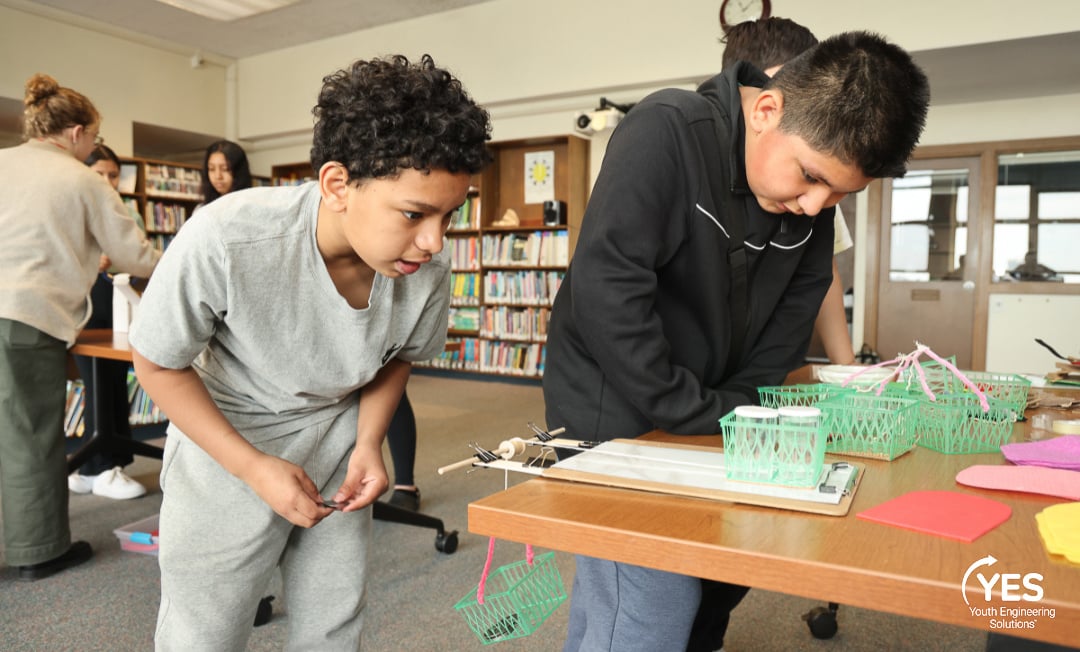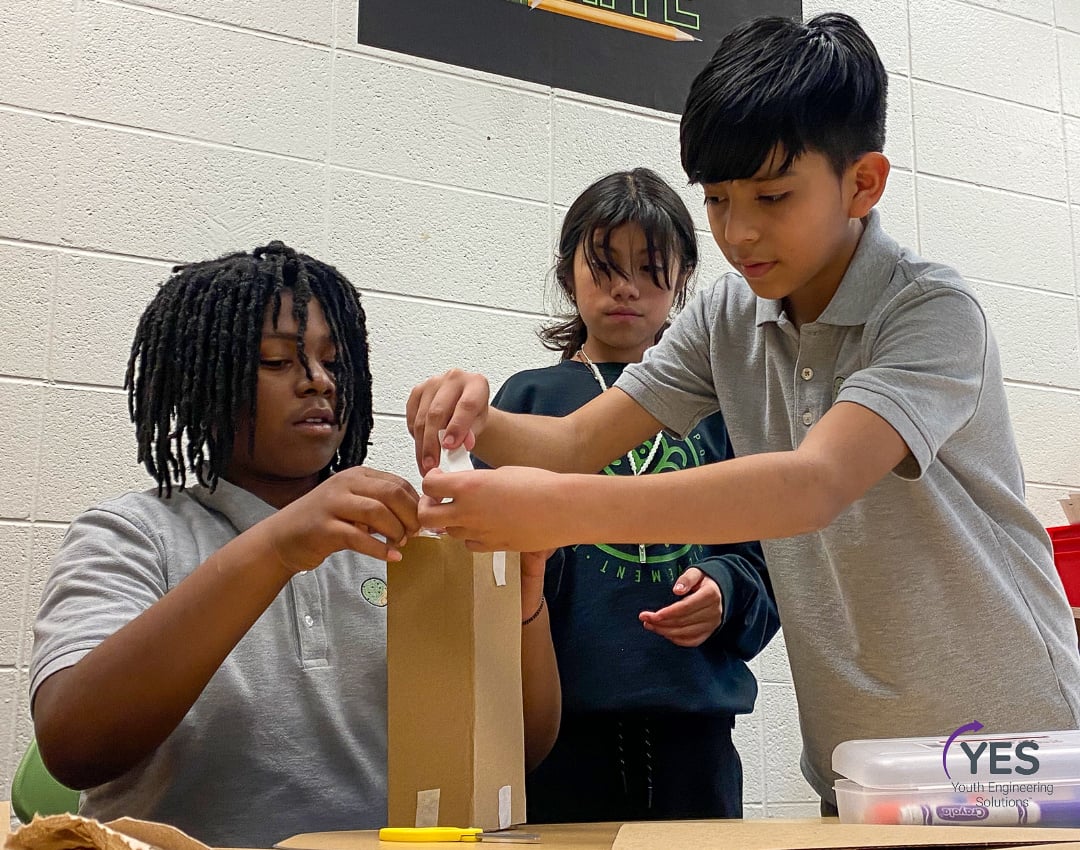Do you want to learn how to channel young learners’ curiosity and creativity into structured problem solving? It’s a common misconception (and fear) that in order to implement and teach engineering at the early childhood level, you need to to be an expert. That is not the case! You just need to be passionate, curious, and willing to become a facilitator of student learning and growth. Watch our recent edWeb webinar.
Engineering and English Language Arts | Engineering for All | Thursday, December 6
Have you taught engineering to English Learners?
The EiE team is committed to making engineering accessible to all students, including the fastest-growing student population in the U.S. in the last decade—English Learners. It’s why we offer Spanish translations of storybooks, family letters, and student handouts for every unit of Engineering is Elementary! We're interested in understanding the experiences of educators who teach engineering to groups that include English learners. If you teach, or have taught, engineering to English learners, we would love to hear from you. We value your insights!
Early Childhood STEM Education | Early Engineering | Thursday, October 25
Visit EiE at NAEYC!
The National Association for the Education of Young Children (NAEYC) is holding its annual conference in Washington, DC from November 14-17, 2018. The EiE team will be out in full force to launch our newest early childhood curricula Wee Engineer and EiE for Kindergarten! We’re excited to share what we've learned about early childhood engineering. We love meeting educators, answering burning questions,and discovering the amazing things happening in classrooms or districts across the country. If you’re attending #naeycAC, check out below what we have in store!
Wee Engineer | Preschool | Pre-K | Kindergarten | EiE for Kindergarten | Engineering Activities | Monday, July 22
Engineering with Preschoolers and Kindergartners: See it In Action!
Young learners are natural engineers, ready to innovate and eager to explore the world around them. Extending our curricula offerings to the youngest learners and creating an engineering design process for the preschool classroom seemed like a natural next step for EiE. Our newest curricula, Wee Engineer and EiE for Kindergarten, are picking up press With our recent feature in T.H.E. Journal, we were reminded how much we couldn’t have created our newest offerings without our closest collaborators: educators! Every EiE unit undergoes multiple rounds of pilot testing to ensure that educators can implement engineering with ease. Our pilot educators teach in a variety of settings and have varying levels of experience with engineering. With their feedback and guidance, we’ve learned so much about how to design hands-on engineering activities for preschoolers and kindergartners. Hear from these passionate educators, download free sample lessons from Wee Engineer and EiE for Kindergarten, and create a generation of problem solvers.
EiE Resources for Teachers | Funding | Engineering is Elementary | STEM Funding | Wednesday, September 5
Need Help Funding STEM?
Don’t let funding concerns get in the way of implementing a high quality STEM program in your school district. Learn how Title IV-A grants can help you give students access to engineering and a well-rounded education. The Every Student Succeeds Act offers opportunities to integrate STEM into elementary classrooms through Title IV grants known as the Student Support and Academic Enrichment Grants. For FY 18, did you know that Title IV got a huge funding boost—from $400 million in 2017-2018 to $1.1 billion? This is a tremendous step forward for elementary STEM education. Now you have even more funds and flexibility to implement STEM programs in your school or district.
